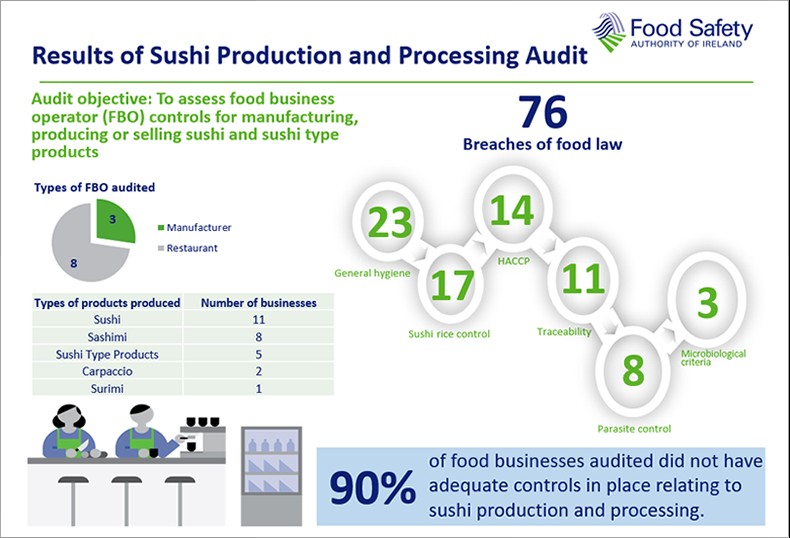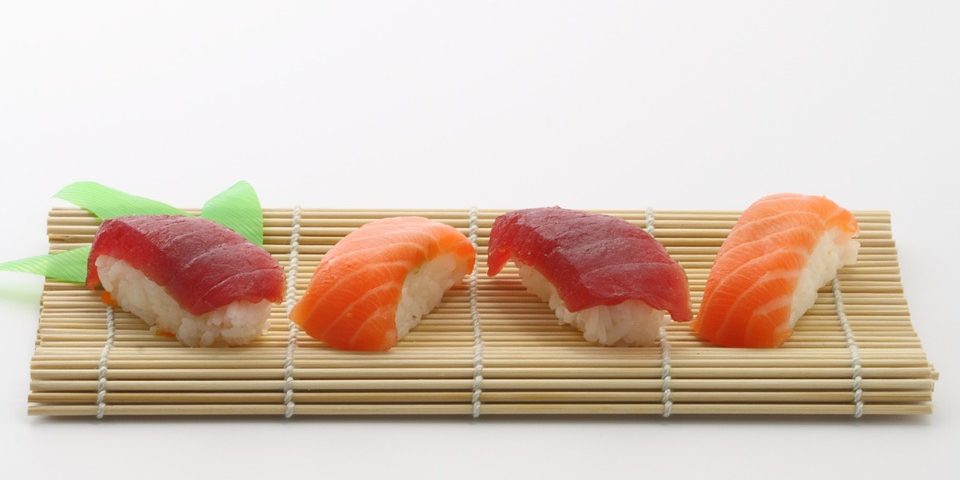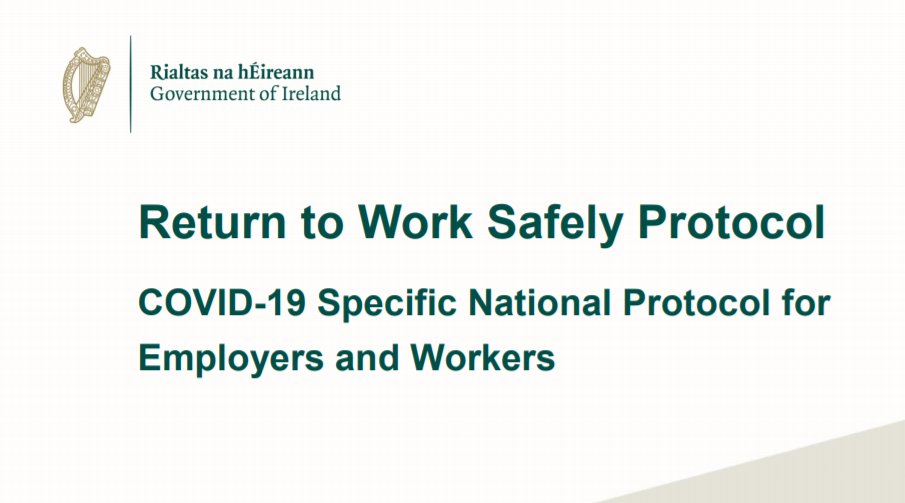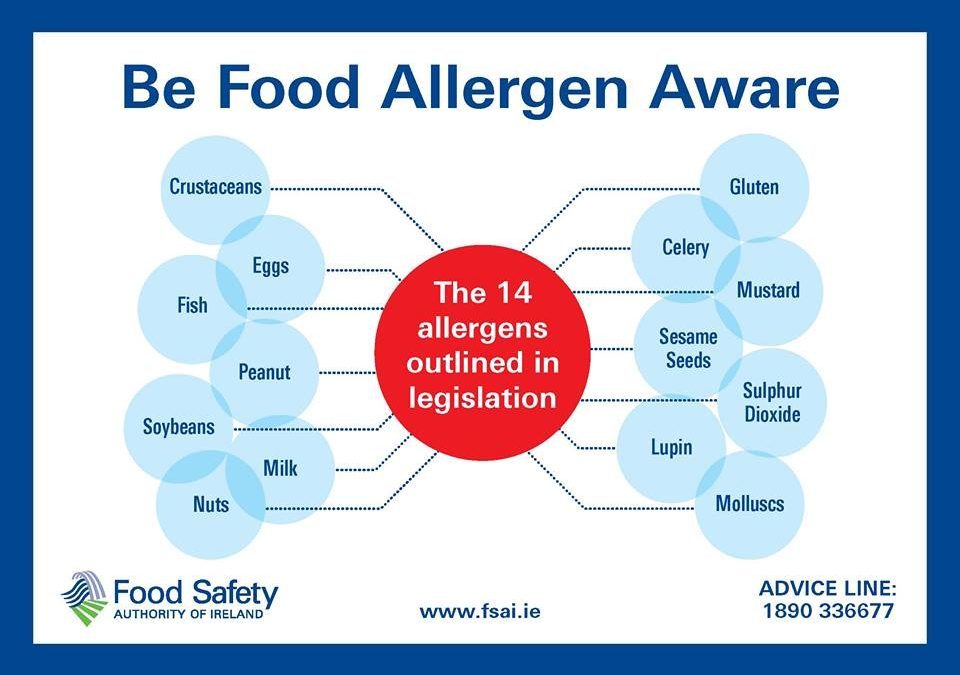Is your Sushi Safe?

Food Safety Knowledge in Ireland Research
03/06/2019
Food Allergy Hospitalisations and Fatalities are Increasing!
04/10/2019The Food Safety Authority of Ireland have recently released the findings of a targeted audit on premises producing sushi and sushi type products. The FSAI are concerned with the findings and stated that ‘the poor standards overall are worrying and suggests a lack of awareness by the sector of the serious food safety risks that sushi can pose if there are inadequate food safety controls in place’.
Sushi and sushi-type products are now widely available and increasingly popular in Ireland. Traditional Japanese sushi consists of temari (small balls) or maki (rolls) made from vinegar-flavoured cold rice encompassing raw fish and wrapped in nori (seaweed). Sashimi and nigiri often confused with sushi, consist of thinly sliced raw fish, or occasionally meat, the difference is nigiri is served on rice. To appeal to the western world, recipes have been adapted. In Ireland you will commonly find cooked meat and fish incorporated into the rolls such as chicken, tuna, crab, tempura prawn and vegetables for example cucumber or avocado.
Due to the increased popularity and growing demand for this perceived healthy food product the FSAI carried out an audit to assess food business operator (FBO’s) compliance with food legislation applicable to their business; with particular emphasis on controls related to sushi production and processing.
The audit consisted of 11 food businesses, of which three were manufacturers and eight were restaurants. The main findings were published last week and are summarised in the FSAI infographic below.

Breaches of food law included; pre-populating temperature records, pH meter not working, frozen fish being defrosted at room temperature, freezers not operating at correct temperatures, no temperature checks on fresh and frozen fish deliveries, incorrect date labelling of fish, lack of training, inadequate hand washing facilities and in relation to microbiological criteria food was found unsafe to eat.
The FSAI states the high level of non-compliance is due to a lack of awareness and lack of training among food business operators and their staff. The food safety risks associated with restaurants producing sushi and sushi type products which contain raw, ready-to-eat fishery products are quite different from restaurants serving other types of cuisine. Two big differences include parasite control and sushi rice control.
Sushi Food Safety Controls
Parasite Control
A parasite is a small animal that lives on or in a host animal (e.g. fish). Foodborne parasites found in fish can cause human illness. As the fish will be served raw there will be no “kill” step for example cooking, therefore the fish must be frozen to – 20 °C for not less than 24 hours; or – 35 °C for not less than 15 hours to kill harmful parasites present. This can either be done by the supplier or by the FBO and evidence must be documented.
Sushi Rice Control
Rice that is subjected to temperature abuse is commonly associated with foodborne illness caused by Bacillus cereus. Consequently, FBO have two options- they can cool the rice to 5°C or below within 2 hours of cooking or they can acidify the rice. This allows warm/hot rice to be kept at room temperature for up to 4 hours without the need for cooling. Acidification of sushi rice is done by adding a vinegar and salt solution to the hot or warm rice, bringing the pH to 4.6 or below. This will limit the growth of food poisoning bacteria. A calibrated pH meter must be used to check the pH of the rice and documented.
In summary, the audit identified that over 90% of the food businesses audited did not have adequate controls in place relating to sushi production and processing activities being carried out at their establishment. It is important to highlight that best practice is achievable as one food business had no breaches of legislation. The FSAI have developed excellent guidelines for food businesses producing sushi and sushi type products which are available on their website.
Here at Choice Training we have developed a new training programme in accordance with the FSAI guidelines tailored to the specific needs of restaurants producing sushi and sushi type products. This will ensure your staff feel confident to carry out their daily tasks in a safe manner. Please contact us for more details.
The full report and the new advice from the FSAI on safe production of sushi can be found on the FSAI website https://www.fsai.ie/enforcement_audit/audit/reports/sushi.html and https://www.fsai.ie/faq/safe_production_sushi.html









